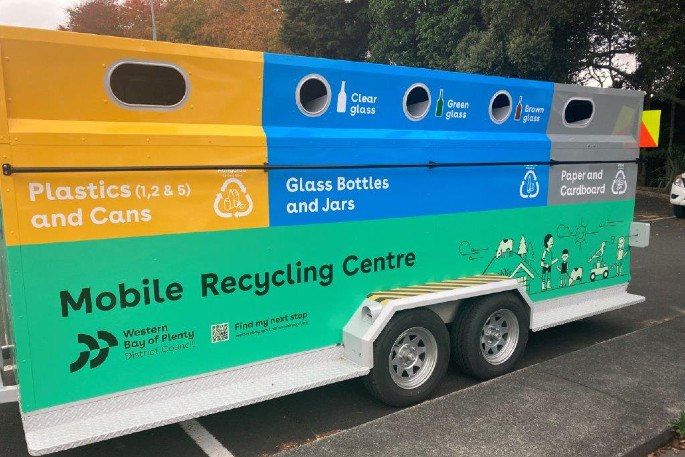New Zealanders have prevented more plastic than ever going to landfills over the past year thanks to 14 local councils (representing 740,000 people) now collecting and recycling more types of plastics.
For Recycling Week 2022, Plastics New Zealand has created a handy interactive map to show plastic recycling by local authority across Aotearoa New Zealand.
"What's really impressive is the increase in councils now collecting polypropylene (#5 PP) and it's just a matter of time until they all collect it," says Plastics NZ environmental projects manager Simon Wilkinson.
"Polypropylene is a highly recyclable material and in demand by local plastics manufacturers who want to use more New Zealand recycled PP instead of importing it.
"Unfortunately, today we still have PP being sold offshore and sent as waste to landfill."
Recycling Week 2022 plastics facts and stats:
- Nearly all local authorities collect plastics #1 and #2.
- 88 per cent of local authorities now collect polypropylene (#5 PP) which represents more than 97 per cent of the overall population.
- 14 more regions started collecting #5 PP in the last 12 months with Kaipara the most recent. These 14 regions are: Carterton, Far North, Hastings, Hauraki, Kaipara, Masterton, Matamata-Piako, Napier, Ruapehu, South Wairarapa, Thames-Coromandel, Waitaki, Western Bay of Plenty, Whangarei.
- 740,000 more New Zealanders can now recycle #5 PP compared to a year ago. Access to #5 PP recycling has grown from 81.3 per cent (in March 2021) to ~97 per cent (in August 2022), that's 4.8 million people up from 4.06 million at the start of 2021.
- Polypropylene is New Zealand's third most commonly recycled rigid plastic. Ice cream and margarine containers, large yoghurt tubs, dip pottles and many clear takeaway containers are all made of PP.
- New Zealand unnecessarily imports around 1200 tonnes of recycled polypropylene annually.
- The current market value of pelletised, recycled PP is between NZ $1300 and $1700 per tonne.
"But we can do better. Still only half of recyclable PP is being put in kerbside collection bins or commercially collected, the rest is mistakenly thrown out as rubbish. Our recyclers need your help," says Simon.
Plastics NZ CEO Rachel Barker says the local plastics industry is fully behind recycling initiatives that capture and remanufacture plastics onshore.
"Plastic is a versatile material used in almost every sector of our economy and initiatives like Recycling Week are all about showing us what each of us can do to reduce waste going to landfills and helping New Zealand shift to a low-emissions circular economy."
Recycled polypropylene is used to make a wide range of products from recycling bins, plant pots and storage boxes to products for building foundations and road stabilisation.
New Zealand has the opportunity to create a circular recycled PP economy worth between $10.4m to $17m annually, and achieve environmental benefits including a reduced carbon footprint.



2 comments
Recycling
Posted on 19-10-2022 10:32 | By Let's get real
I can't speak for others in my neighbourhood, but I can say quite categorically that our recycling habits have diminished considerably since the Maleme Street site was closed to the public and the individual bins were introduced. Now, most of our rubbish goes into the bin that is collected most often. We had small bins at home, that were easily stored and when they were full of cans, glass or cardboard we would take them to the Maleme Street site and empty appropriately. We did our bit, but now who wants huge amounts of rubbish getting in the way at home for weeks.
Long way to go yet
Posted on 19-10-2022 10:51 | By Kancho
So much still not recycled and so much wasted we are really scratching the surface and way behind on the technologies used overseas. Very annoying to go all the way across the city to find such rudimentary recycling and omissions. For a big city to have only one recycling facility is pathetic and so restricted.
Leave a Comment
You must be logged in to make a comment.